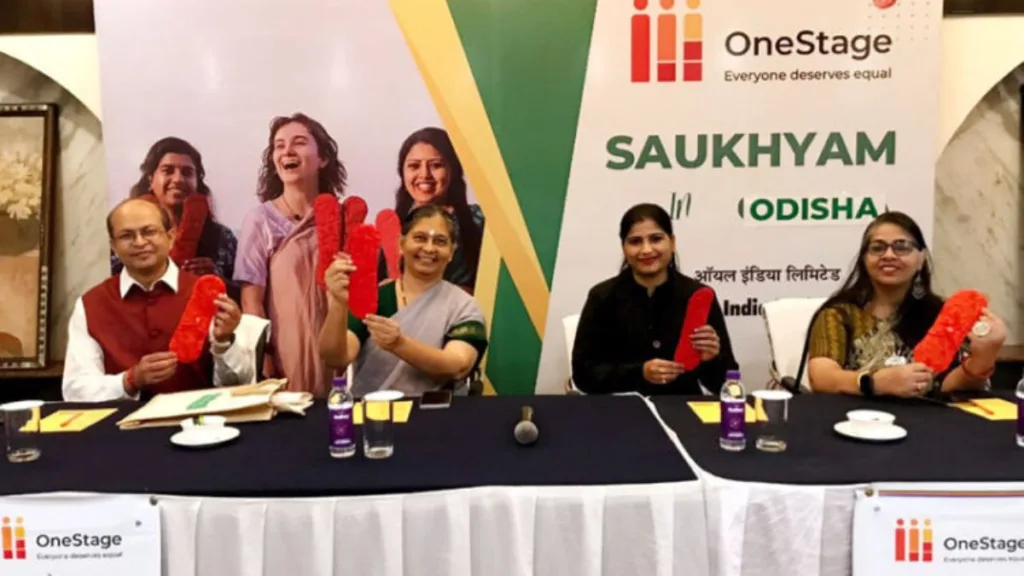Bhubaneswar: During a round table discussion in Bhubaneswar on March 20, Anju Bist, Managing Director of Saukhyam Reusable Pads, renowned as the “Pad Woman” of India, stressed the importance of sustainable menstrual hygiene in Odisha. The gathering focused on the environmental repercussions of disposable sanitary pads and advocated for the utilization of reusable pads crafted from organic materials, particularly Saukhyam Reusable Pads made from banana fiber.
Saukhyam, an initiative of the Mata Amritanandamayi Math, has garnered significant recognition, including the Women Transforming India award from NITI Aayog and the Impact Innovation Challenge Award at this year’s IIT Global Conference. Founded by Amma, Sri Mata Amritanandamayi Devi, Saukhyam aims to provide a safe menstrual management product that is environmentally friendly, countering the well-documented harmful chemicals present in most disposable sanitary napkins.
To raise awareness and advocate for sustainable menstrual hygiene practices, Saukhyam, in collaboration with the NSS Unit of the Department of Higher Education, Government of Odisha, conducted awareness workshops in various colleges in Bhubaneswar and Cuttack. Mr. Ramesh Chandra Behera, NSS State Coordinator, expressed satisfaction with the positive feedback received and announced plans to expand these workshops to more colleges this year.
Representatives from the Odisha Menstrual Health and Hygiene Alliance, Oil India, and Indian Railways also shared their strategies for advancing this sustainability initiative. Oil India has supported the establishment of India’s largest reusable pad factory in Kerala, serving as a central hub with rural satellite production centers across multiple states, including plans for a center in Odisha in collaboration with Team Saukhyam.
India’s adoption of ISO standards for reusable sanitary pads (IS 17514:2021) indicates a growing recognition of the necessity for sustainable menstrual hygiene products. Praveen Bist, CIO of Amrita Hospitals, highlighted the importance of reusable menstrual pads in making menstrual hygiene solutions accessible and affordable for communities.
Dr. Archana of Indian Railways emphasized the harmful effects of phthalates and volatile organic compounds present in commonly available disposable sanitary napkin brands, praising Saukhyam’s health benefits and announcing a lifetime free supply for national- and international-level players.
With over 500,000 women and girls in India and abroad embracing Saukhyam Reusable Pads, the initiative has prevented the annual emission of 4000 tons of carbon dioxide equivalent and eliminated an estimated 43,750 tons of non-biodegradable menstrual waste.
The round table concluded with Ms. Sneha Mishra, representing the Odisha Menstrual Health and Hygiene Alliance, presenting a set of Saukhyam pads to national athlete Ms. Subhasmita Rath, symbolizing an imminent shift. A call to action urged individuals, communities, and businesses to adopt the principles of a circular economy and choose sustainable alternatives for a healthier planet.

